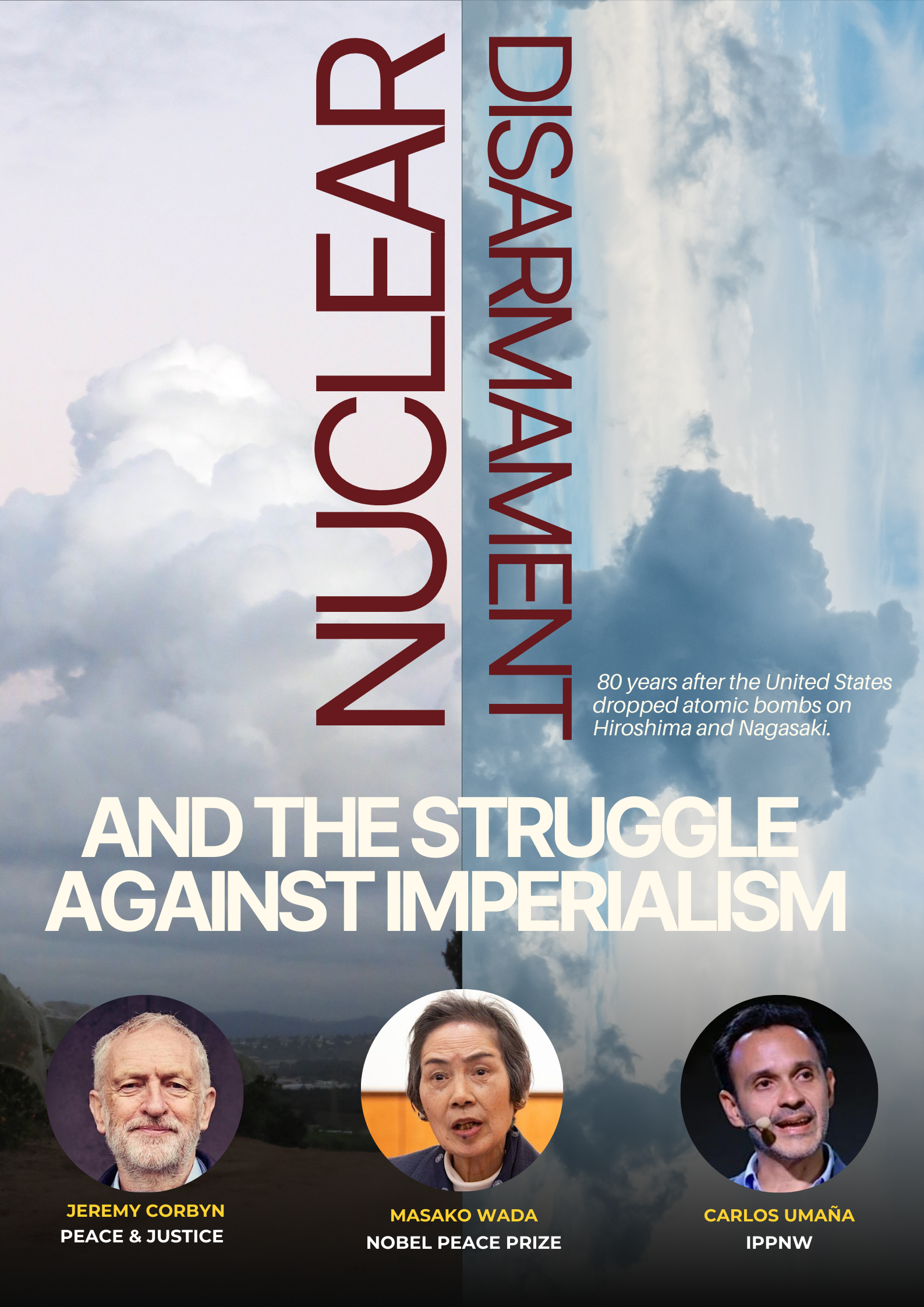Webinar: Nuclear Disarmament and the Struggle Against Imperialism
Discussing nuclear disarmament and struggle vs imperialism 80 years after the United States dropped atomic bombs on Hiroshima and Nagasaki.
- Jeremy Corbyn, UK Member of Parliament and founder of the Peace and Justice Project, participated in the 80th commemoration of the atomic bombing of Hiroshima.
- Masako Wada, hibakusha and assistant secretary general of 2024 Nobel Peace Prize awardee Nihon Hidankyo.
- Carlos Umaña, Co-President of IPPNW, the International Physicians for the Prevention of Nuclear War.
Eighty years after the United States dropped atomic bombs on Hiroshima and Nagasaki, nuclear disarmament remains critically relevant. Historically, campaigns for nuclear disarmament and anti-imperialist movements have converged profoundly in their shared opposition to structural violence, injustice, and hierarchical global power.
Early anti-nuclear protests directly challenged imperial powers conducting nuclear tests in colonized territories. At the 1955 Bandung Conference, newly independent nations condemned nuclear weapons as tools of imperial coercion. Notably, Africa played a pioneering role in this struggle: Kwame Nkrumah hosted the landmark "World Without the Bomb" assembly in Accra (1962), and in 2009, the continent solidified this legacy creating the world’s first continent-wide nuclear-weapon-free zone.
The 1968 Nuclear Non-Proliferation Treaty (NPT) institutionalized global hierarchy by recognizing five nuclear powers while denying others the right to such weapons. Significantly, enforcement proved selectively anti-Global South: nonproliferation policies targeted states like Iran and Libya while ignoring allies such as Israel. This double standard exposed disarmament diplomacy as a mechanism of control rather than a genuine commitment to universal security.
Consequently, the global peace movement has consistently linked nuclear abolition with anti-imperialism. The 2017 Treaty on the Prohibition of Nuclear Weapons (TPNW) exemplified this legacy—emerging from Global South leadership and invoking humanitarian principles to delegitimize nuclear deterrence. Its negotiation deliberately echoed the spirit of Bandung, rejecting the NPT’s entrenched power asymmetries.
This activity is organized by Progressive International, Peace and Justice Project and People’s Health Movement as part of the League Against Imperialism Centennial Campaign.




